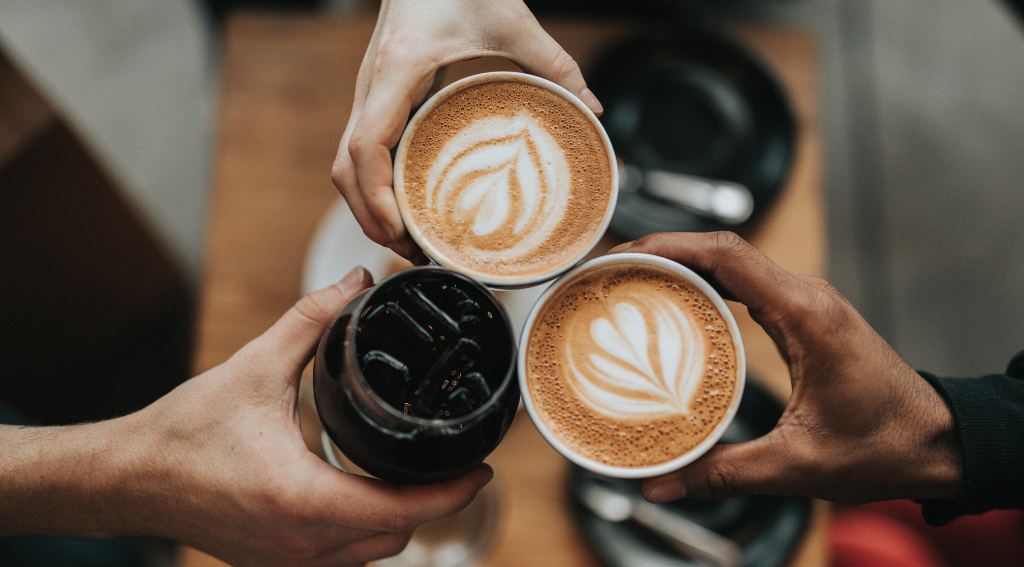Looking for delicious fair trade coffee beans to motivate you to get out of bed? If you’re obsessed with trying new, mold-free coffee blends every so often, you’re in the right place! Here’s our list of the best organic coffee brands in 2024!
For more options, check out the 13 best organic and sustainable Nespresso pods.
The Healthiest Coffee Brands for Organic, Fair Trade Coffee
Unlike its conventional counterpart, organic and fair trade coffee is grown without the use of synthetic pesticides, herbicides, and fertilizers, prioritizing the health of the soil and surrounding ecosystems. Regular coffee, on the other hand, often involves conventional farming methods that rely on chemical inputs to boost yields and deter pests. While these practices may increase productivity in the short term, they come at a significant cost to the environment. Synthetic chemicals can leach into the soil, contaminate water sources, and harm non-target organisms, contributing to ecological imbalances.
Beyond the environmental ramifications, the cultivation of regular coffee sometimes raises concerns about fair labor practices and worker well-being. In regions where conventional coffee is produced intensively, laborers may face exposure to harmful chemicals, endure harsh working conditions, and receive inadequate compensation. In fact, according to the International Labor Organization, there are 150+ million child slaves working to produce many of our everyday purchases such as coffee and cocoa.
So, to put it simply, organic, fair-trade coffee is not only healthier but also way more ethical.
What Is Organic Fair Trade Coffee?
Organic Fair Trade coffee is a type of coffee that is produced and traded in accordance with specific social and environmental standards. The term “organic” refers to the farming practices used to cultivate the coffee beans. Organic coffee is grown without the use of synthetic pesticides, herbicides, or fertilizers. Instead, farmers rely on natural methods to enhance soil fertility and control pests.
The term “Fair Trade” relates to the ethical and fair treatment of coffee farmers and workers involved in the production process. Fair Trade certification ensures that the farmers receive a fair price for their coffee, allowing them to cover the cost of production and maintain a sustainable livelihood. Additionally, Fair Trade standards often include provisions for social and community development, such as investing in education, healthcare, and environmental initiatives within coffee-producing regions.
Is Organic Coffee That Much Better for You?
Yes! While the nutritional differences between organic and conventional coffee are minimal, some argue that organic coffee might have a slightly higher nutrient content due to the healthier soil conditions in organic farming. For the same reason, organic, non-GMO coffee has a cleaner and more robust flavor profile. In most cases, the blends are also “mold-free” or “mycotoxin-free.”
Mycotoxins are toxic substances produced by certain molds. In the context of organic coffee, the concern is that molds can grow on coffee beans during the processing and storage phases, potentially leading to mycotoxin contamination.
The roasting process plays a significant role in eliminating mycotoxins. High-quality coffee roasters implement roasting techniques that not only enhance flavor but also effectively destroy molds and mycotoxins present in the beans.
Why is Organic Coffee so Expensive?
The higher cost of organic coffee is rooted in a combination of factors that revolve around the distinct practices involved in organic farming. Organic and Fair Trade coffee cultivation eliminates the use of synthetic pesticides, herbicides, and fertilizers, opting instead for natural methods. While environmentally friendly, these practices are often more labor-intensive and time-consuming, contributing to increased production costs.
Moreover, the risk of crop loss is heightened in organic farming due to the absence of synthetic chemicals for pest control and disease prevention. This risk, coupled with potentially lower yields compared to conventional methods, can result in a less stable production environment for organic coffee farmers.
Obtaining and maintaining organic certification further adds to the expenses. Certification involves rigorous inspections, paperwork, and adherence to stringent standards, and these costs are inevitably reflected in the pricing of the final product.
Is it Worth It to Buy Organic Coffee?
Yes! Organic coffee farming practices prioritize sustainability, biodiversity, and soil health. By choosing organic coffee, you support agricultural methods that minimize the use of synthetic chemicals and promote eco-friendly practices. If you value environmental conservation and sustainable agriculture, organic coffee may align with your values.
Also, organic coffee is grown without synthetic pesticides, herbicides, and fertilizers. Some people choose organic coffee to minimize their exposure to potentially harmful chemicals commonly used in conventional farming.
Lastly, by purchasing organic, fair trade coffee beans, you support farmers who adhere to strict organic standards and often prioritize fair labor practices. Organic certification requires farmers to comply with various social and environmental criteria, contributing to better working conditions and livelihoods for coffee-producing communities.
Is All Organic Coffee Mold-Free?
While organic coffee is generally produced using practices that minimize the risk of mold contamination, it’s essential to note that the term “organic” primarily refers to the farming methods employed, not the absence of mold. Organic coffee is grown without synthetic pesticides and herbicides, and it often undergoes rigorous testing to meet organic certification standards.
However, the potential for mold presence can still exist at various stages of coffee production, particularly during storage and processing. The risk is not exclusive to organic or conventional coffee; it depends on the specific practices implemented by individual producers.
The roasting process plays a crucial role in reducing the presence of mold and mycotoxins in coffee. High-quality coffee roasters implement effective roasting techniques that not only enhance flavor but also destroy molds and mycotoxins on the beans.
If mold presence is a specific concern, consumers may look for coffee brands that explicitly address this issue through testing and quality control measures. Some of the healthiest coffee brands market their products as “mold-free” or conduct additional testing for mycotoxins to assure consumers of the safety and quality of their coffee.
The Best Sustainable Organic Coffee Brands in 2024
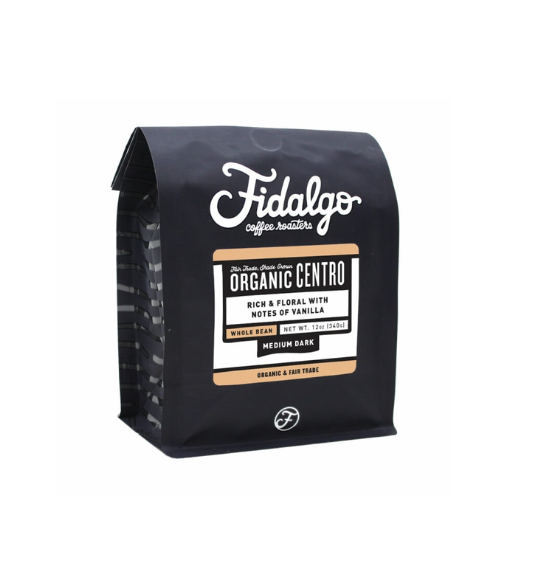
1. FIDALGO Organic, Fair Trade Coffee Beans
Price: From $27
Fidalgo Coffee Roasters, based in Burlington, Washington, has been on a mission since 1992 to bring joy through quality mold-free coffee that’s not only good for people but also for the planet.
Most of Fidalgo’s non-gmo coffee blends are Central and South American coffees, with a commitment to specialty-grade roasting. This includes an array of enticing options such as the organic French roast, organic Italian roast, organic breakfast blend, organic espresso, organic decaf coffee, and more.
Also, as a second chance employer, Fidalgo runs the Underground Coffee program, emphasizing social responsibility in their operations.
P.S. My personal favorite is the organic espresso, which pairs exceptionally well with the Gaggia espresso & coffee machine recently added to their collection.
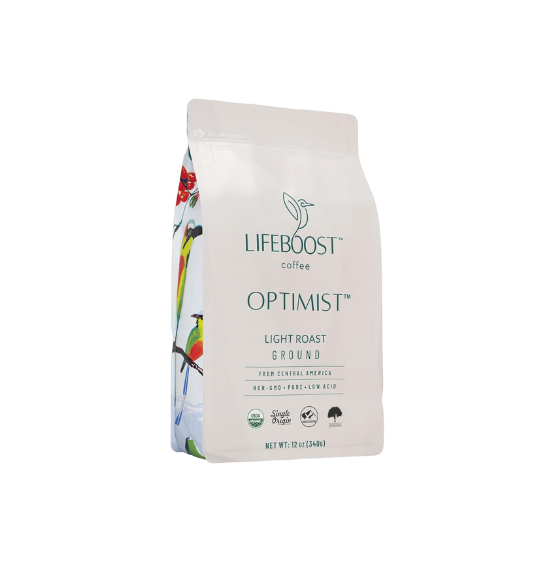
2. Lifeboost USDA Organic Ground Coffee Beans
Price: From $25.16
Lifeboost coffee is recognized by both the Natural Food Certifiers and the United States Department of Agriculture. What sets it apart is the extensive testing it undergoes – more than 400 toxic chemicals, including pesticides and mycotoxins, are scrutinized. For those with specific health considerations, Lifeboost non-GMO coffee proves to be a wise choice. Its low acidity makes it suitable for individuals with sensitive teeth or stomachs, providing a gentler experience on digestion. The Arabica beans, meticulously hand-selected, hail from a region in Central America renowned for producing coffee with a rich and flavorful profile.
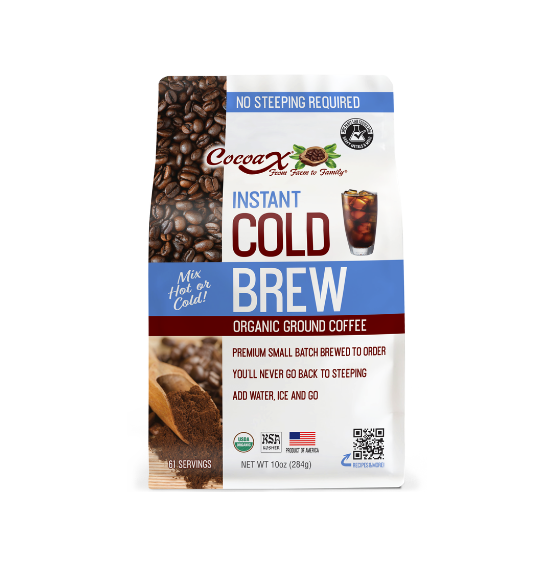
3. COCOAX Instant Organic Coffee
Price: From $15.99
CocoaX takes cold brew to the next level with its organic and freshly roasted offering. This cold brew boasts a bold nutty flavor, eliminating the need for elaborate preparations – just add ice and water, and you have a ready-to-serve delight in seconds.
To top it all off, the brand exclusively partners with suppliers who refrain from using harmful chemicals during the farming process.
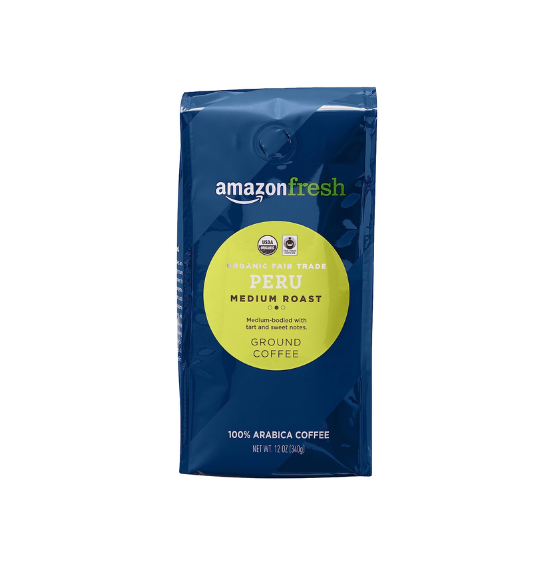
4. AmazonFresh Fair Trade Ground Coffee
Price: From $11.99
Here’s one of the best medium roast organic coffee options – AmazonFresh.
Amazon’s own coffee brand proves that excellence can come from unexpected sources! They surprised many with its in-house coffee offering, and it’s gaining high recommendations from thousands of satisfied customers. The Fair Trade Peru roast, in particular, stands out as a customer favorite, celebrated for its delightful hints of brown sugar and cocoa.Amazon takes pride in packaging its 100% Arabica beans right after roasting, ensuring that the coffee delivers maximum flavor and aroma. The strength of the coffee is noteworthy, striking a perfect balance without veering into bitterness, making it an ideal choice for those who prefer a medium roast.
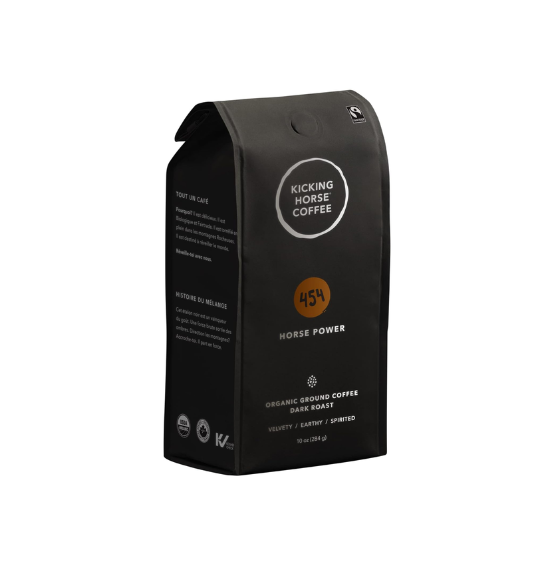
5. KICKING HORSE Certified Organic Fair Trade Beans
Price: From $11.47
Kicking Horse Coffee stands out for its commitment to quality through the exclusive use of certified organic and fair trade beans. The brand takes pride in the meticulous crafting of each organic coffee blend, achieved through rigorous attention to detail and extensive cupping and tasting processes. On top of that, The Kicking Horse Coffee team sources beans from various origins, skillfully roasting them to create blends that boast remarkable depth and a diverse range of flavors.
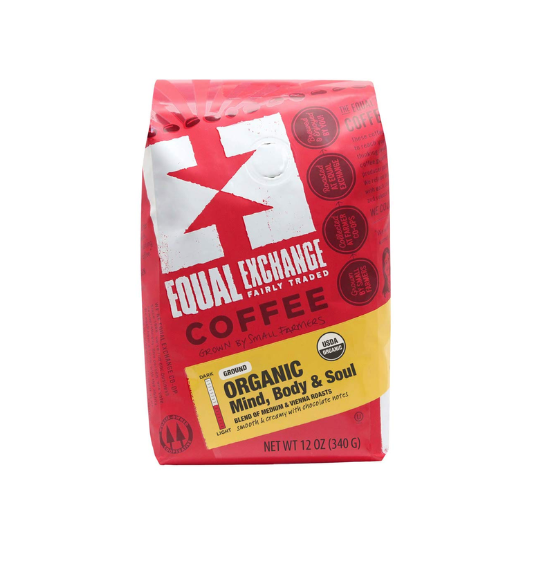
6. EQUAL EXCHANGE Organic Coffee Beans
Price: From $29.42
Equal Exchange operates on the principle that those who cultivate our food and brews should have a significant say in the company and their economic future. With a strong commitment to being a Fair Trade company and advocating for safe and sustainable farming practices, Equal Exchange offers a wide range of certified organic coffees. The brand is dedicated to providing transparency about the regions where their beans originate and the farmers responsible for growing them.
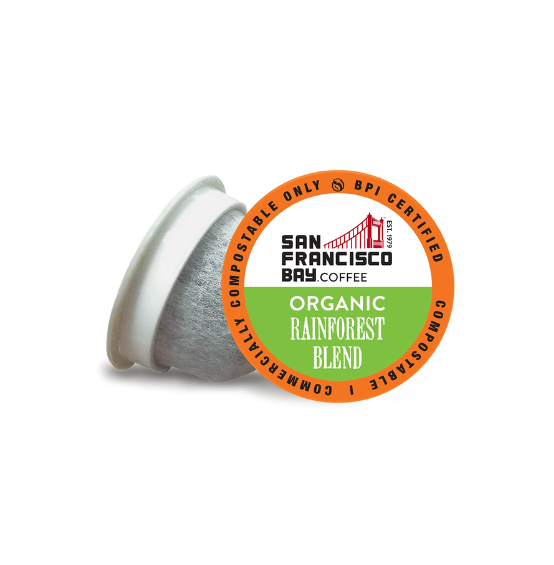
7. San Francisco Bay K-CUP Organic Coffee
Price: From $46.43
San Francisco Bay’s Compostable organic K-Cup coffee pods boast over 91,000 reviews on Amazon and earned the title of the most popular in their category. What makes San Francisco Bay’s pods stand out is not only their popularity but also the flexibility they offer in terms of pod counts. Whether you’re just dipping your toes into the experience with a 12-count or fully committing to a 120-count, the brand caters to various preferences and needs. To keep your Keurig running smoothly and maintain the quality of your brew, the writer recommends using Keurig cleaning pods after brewing your cuppa.
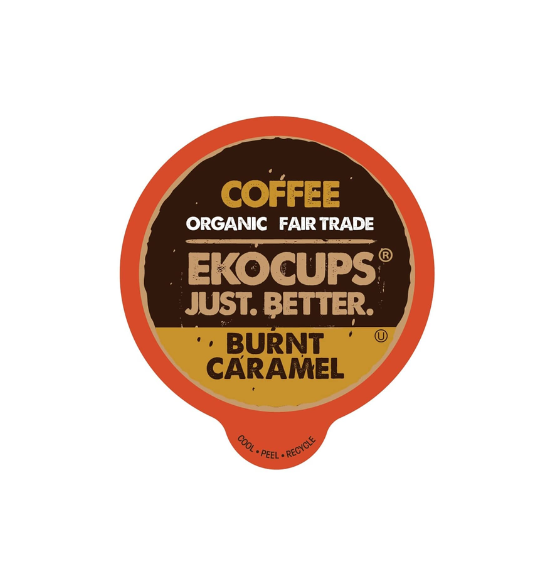
8. EKOCUPS Certified, Fair Trade, and Organic Coffee Pods
Price: From $32.65
Known for being one of the healthiest coffee brands in 2024, EKOCUPS takes pride in offering USDA Certified, Fair Trade, and Organic single-serve coffee pods that cater to various dietary preferences – they are gluten and lactose-free, OU Kosher, and Vegan.
The brand boasts an impressive range of roasts and flavors, including enticing options like vanilla, burnt caramel, hazelnut, and more. The best part? All capsules are recyclable! With 30% more coffee per pod than leading national brands, Ekocups brews richer cups of coffee that just taste.
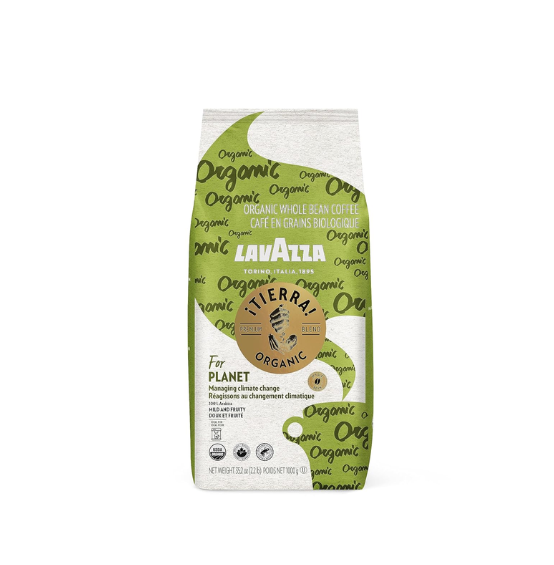
9.Lavazza Organic ¡Tierra! Coffee
Price: From $25
Lavazza, the renowned Italian espresso brand with over 120 years of history, has captured the hearts of more than 80,000 Amazon shoppers. If there’s one organic coffee to invest in, Lavazza comes highly recommended. Their organic ¡Tierra! variety, a light roast crafted from 100% Arabica beans, offers subtle notes of dried fruit and flowers.
What sets Lavazza apart is not only its rich heritage but also its commitment to organic and sustainable practices. The hand-picked beans used in ¡Tierra! are grown on farms certified by the Rainforest Alliance, ensuring both quality and environmental responsibility. Lavazza’s ¡Tierra! organic coffee represents a harmonious blend of tradition, flavor, and sustainability, making it a top choice among discerning coffee enthusiasts.
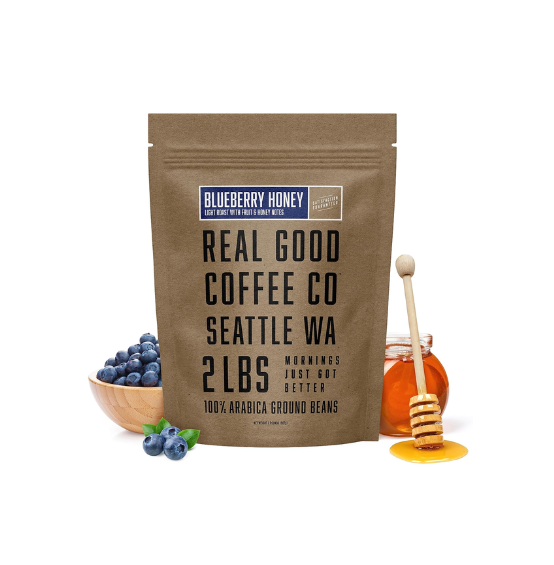
10. Real Good Cofee Co Non-GMO Coffee
Price: From $32.99
Real Good Coffee Co. is touted for its wide range of sustainable coffee products! The brand offers 100% recyclable Keurig-compatible cups, Nespresso Compatible Pods, cold brew for those favoring low acid beans, and bags of whole bean coffee, among other options.
What makes Real Good Coffee Co. appealing is its array of blends, ensuring there’s something for everyone. Choices include breakfast, organic, French roast, and Donut Shop blends. The whole-bean organic coffee bags promise an organic and authentic taste, providing a rich and satisfying experience. Plus, for those seeking convenience without compromising on flavor, the Keurig Cups and Nespresso Compatible Pods offer a delicious wake-up call with minimal effort.

About Author
Konstantina Antoniadou
Sustainability writer, with almost ten years of expertise in media and publishing. Focused on helping conscious readers discover the best fashion, skincare & non-toxic home products on the eco market. Her work has been featured on various digital magazines and blogs, and she continues to strive towards making a positive impact through her writing.

